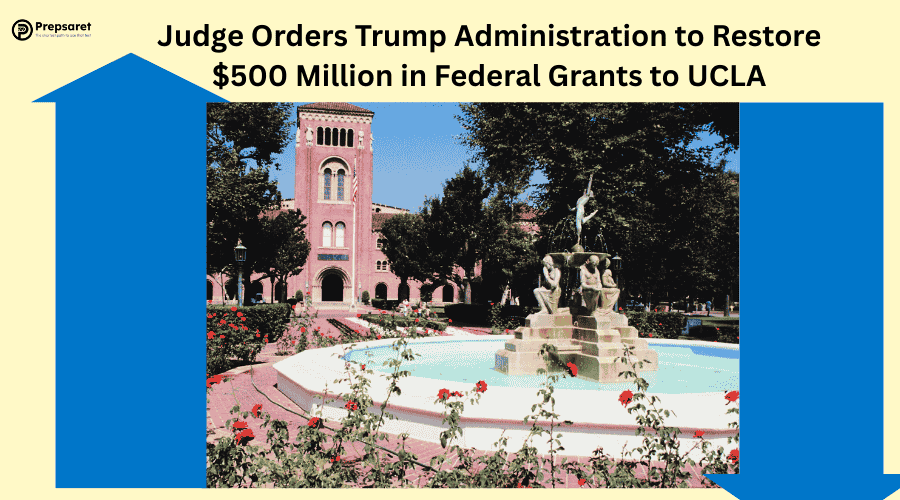Key Points:
- A federal judge ruled the Trump administration must reinstate over $500 million in frozen federal grants to UCLA.
- The suspension was tied to allegations of antisemitism and protests on campus, sparking lawsuits and free speech concerns.
- The ruling marks a major victory for UCLA and the wider University of California system amid escalating tensions with federal officials.
Court Ruling Reinstates Critical Funding
A federal judge has ordered the Trump administration to restore more than $500 million in federal research grants to the University of California, Los Angeles (UCLA), halting a nearly two-month funding freeze. The suspension, announced in August, affected grants from the National Institutes of Health (NIH), the Department of Defense, and the Department of Transportation, threatening vital medical research and university programs.
U.S. District Judge Rita F. Lin, based in San Francisco, ruled that the government’s indefinite suspension of grants was “likely arbitrary and capricious” and violated the Administrative Procedure Act, which requires clear justification for executive actions. Lin said the administration’s reliance on vague form letters to justify cuts represented a “fundamental sin” in federal rulemaking. The ruling, a preliminary injunction, will remain in place while the broader lawsuit proceeds.
The order provides significant relief to UCLA and other University of California campuses that collectively receive billions in annual federal support. Faculty members had warned of possible layoffs and laboratory closures if the funds were not restored, particularly in critical research areas like cancer and stroke studies.
Political and Legal Context
The funding freeze was part of a broader Trump administration campaign to pressure universities accused of failing to address antisemitism linked to pro-Palestinian protests. Officials also cited concerns over affirmative action and recognition of transgender identities in higher education policies. UCLA and other schools rejected claims that their campuses tolerated antisemitism, arguing instead that student criticism of Israel’s military actions in Gaza was protected political speech.
The University of California system, along with faculty and labor unions, sued the administration, claiming the freezes were an unconstitutional attempt to stifle academic freedom. Rights groups echoed those concerns, warning that tying federal funding to campus political disputes posed grave risks to free expression.
The case reflects a wider national pattern. Columbia and Brown Universities recently reached costly settlements with the government to regain suspended grants, while Harvard University successfully challenged a freeze on $2 billion in funding. The UCLA case, however, represents one of the largest and most consequential battles yet.
Judge Lin’s decision restores immediate stability to UCLA but does not resolve the underlying conflict. The Trump administration has signaled it may appeal, and ongoing negotiations between universities and federal officials remain tense. Still, advocates for UCLA hailed the ruling as a major win for both academic freedom and the future of publicly funded research.

